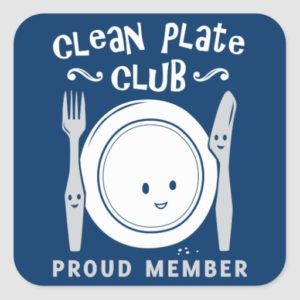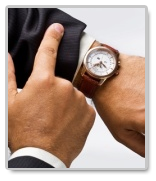 If you’ve ever been (or still are) a smoker, then you understand how some habits are hard to break. I guess, when you look at it, ALL habits are hard to break, right?
If you’ve ever been (or still are) a smoker, then you understand how some habits are hard to break. I guess, when you look at it, ALL habits are hard to break, right?
I have a habit of being punctual… to the level of obsessive-compulsive. I learned it at my mother’s knee. If I said I would be home by 5 p.m. (after a summer’s day of biking, throwing rocks at frogs, playing baseball, and generally hanging out with my friends), it better not be 5:01!
“Clean your plate. Remember the starving (fill in a third-world nationality here).” Still doing that.
So what do I do now, some 65 years later? I arrive for a meeting 10 minutes in advance (must include extra time for unknown possibilities) and knock on your door as the second hand passes 12 of the scheduled arrival minute. Habit.
As I already said, I cannot leave anything on my dinner plate either. Habit.
One of these serves me well. That timeliness habit has morphed into a knower/judger (K/J) rule that being on time is just expected. (My wife has a different rule, but that’s another article.)
The other doesn’t serve me so well. I struggle continuously to stay within 10 pounds of my desired weight—sometimes 20!
Last year I scheduled an introductory meeting with potential clients. It was on my calendar app in my phone at 11:30 a.m. Somehow I had it in my head as noon. While calmly preparing for the meeting (which was 45 minutes away), my phone beeped, telling me I had a meeting in 30 minutes. ARRRGGHHH!!!! I screwed up!
I texted the client and explained I’d be late, and they were fine with it. But I was a mess! How could I?!?!? My mother would be screaming at me! I felt absolutely terrible. Like an abject failure. And I beat myself up about it for the whole 45-minute drive.
Like a smoker without a cigarette—or an alcoholic without a drink—or me with something left on my plate. Damned uncomfortable!
Doing whatever I have to do to stay in my comfort zone is, for all intents and purposes, an addiction. Now, there are behavioral comfort zones and chemical comfort zones and emotional comfort zones, and I believe they can all help to define an addiction.
I can’t tell you how completely upset I was with myself for blowing this scheduled meeting. Far more than the client was. (The meeting was, businesswise anyway, a success.) It had me TOTALLY out of my comfort zone (arriving 10 minutes early and walking in at the precise moment—Thanks, Mom!). I can map that feeling over any number of other addictions I claim (donuts, craft beers, a clean plate). And some of these are NOT in my best interest, but I do them anyway because they keep me in my comfort zone.
I call this “Meeting an immediate emotional need” vs. doing what’s in my best interest
Sometimes the outward expression of these addictions defines us. It’s how others see us. A number of behavior assessments (DISC, Myers-Briggs, etc.) can predict quite accurately what we will do in certain circumstances—i.e., how we will react. They predict what will keep us in our comfort zones.
Unless interrupted by some new data or decision to do otherwise, we will react in a manner that we have learned keeps us comfortable and not conflicted.
It’s logical, then, that if I am addicted to something that might have served me well as a child (e.g., obsessing about timeliness or cleaning everything off my plate) but drives everybody around me crazy as an adult or shortens my life, I may want to force myself into DISCOMFORT until a new habit is formed. Or at least forego meeting that immediate emotional need.
So far I don’t see the downside to punctuality. Somebody prove me wrong! The downside to finished plates is, well, two wardrobes.


